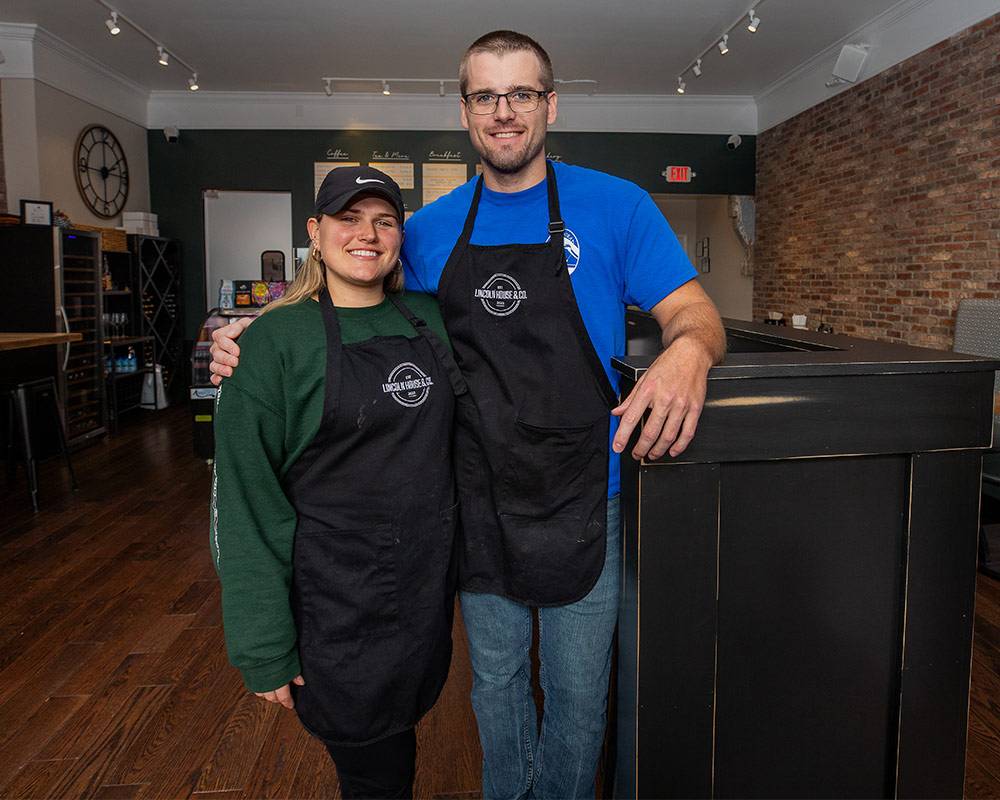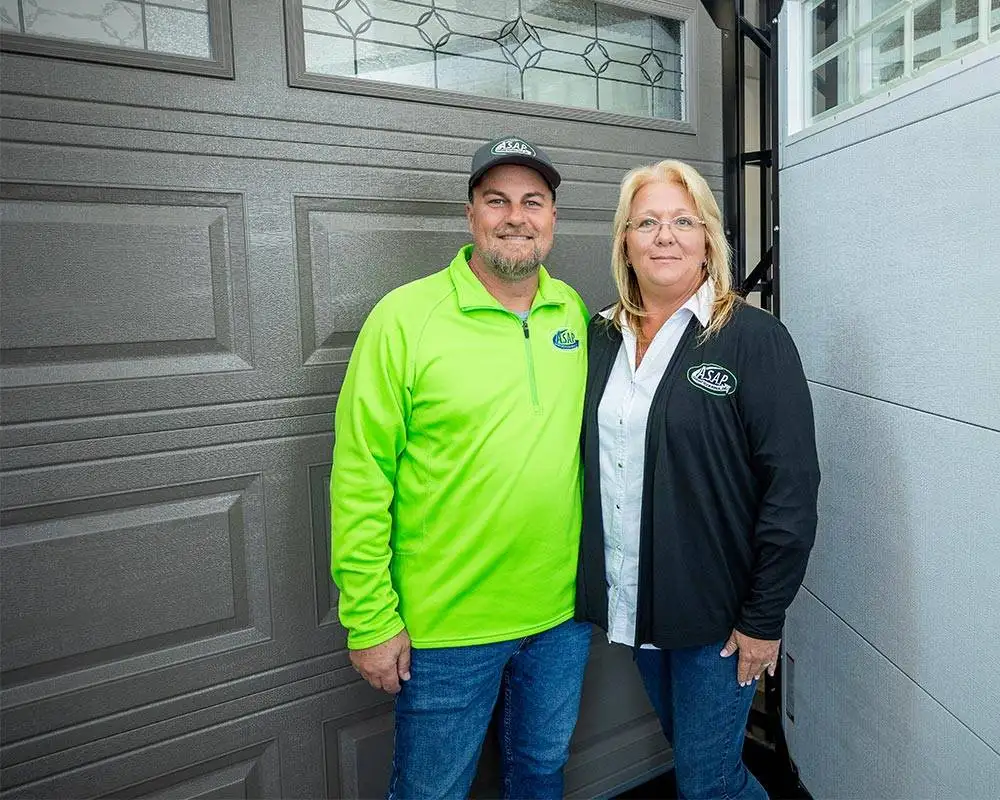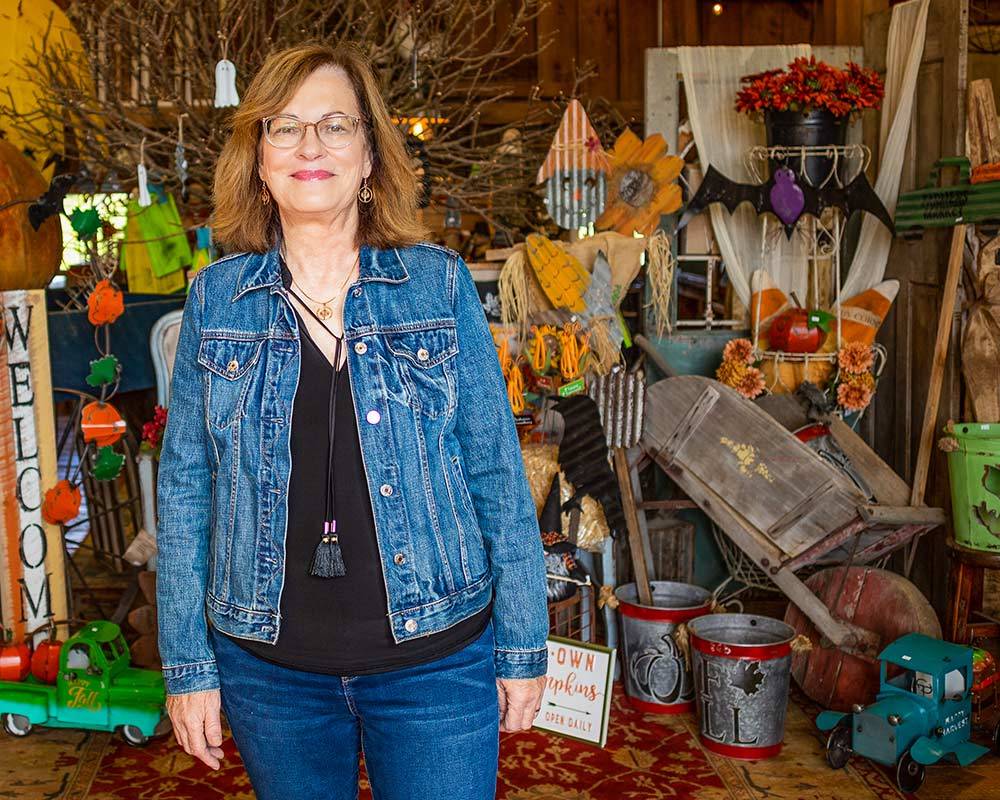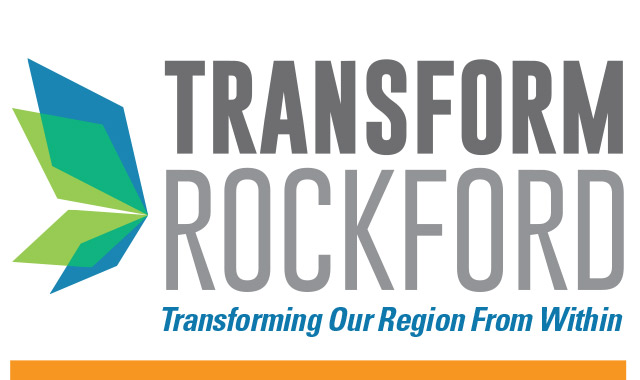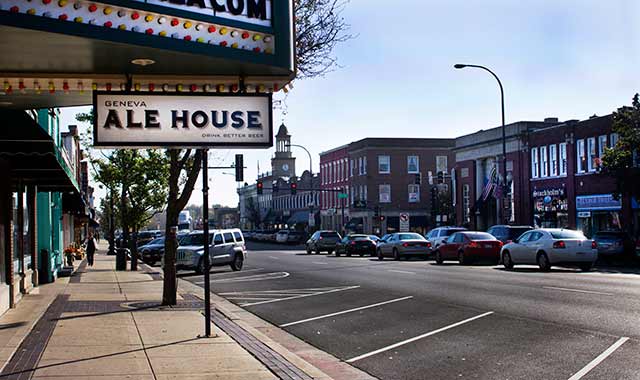Truly transforming the Rockford region into a Top 25 community requires a closer look at how we raise up those in poverty. A new project with Transform Rockford is taking the first step.

Compare the Rockford region against 100 similar American communities and you’ll notice our poverty rate is high, at about 14.5%, but it’s in the middle of the pack. If Rockford is to be a Top 25 community, the needle has to move.
But how do you make a meaningful change that truly transforms the lives of the poor? It’s a question Mary Cacioppi, executive director of One Body Collaboratives, considers on a daily basis. The nonprofit agency works to connect local needs with available resources.
“We have a resource center, and we see that we are many times simply putting the Band-Aid on the crisis of the day for the person who’s calling us,” she says. “We’re not really getting to the core issue that created the crisis for that person. We can do a good job of providing referrals and resources to meet their immediate need, but not really diving down deeper into what created that need initially.”
While there are numerous resources to help with job skills and literacy, Cacioppi found there wasn’t much to help those individuals gain self-sufficiency – or for the community to support their journey out of poverty. Just more Band-Aids.
This spring, One Body Collaboratives is taking a leap forward as it launches the Bridges Out of Poverty project with help from Transform Rockford, the nonprofit that’s guiding our region’s strategic self-renewal. Bridges Out of Poverty is part of a national program that brings a community together in its pursuit of reducing poverty.
“It’s the idea of a community-wide movement in getting everyone in the community engaged in understanding the barriers to poverty, owning the poverty our community has, and then bringing together the right groups of people to talk about how we can remove the barriers for individuals in poverty.”
Bridges has found success across the country, in places like Omaha, Neb.; Youngstown, Ohio; and St. Joseph County, Ind.. It’s also launched in Joliet, Ill.
“Bridges out of Poverty is moving toward evidence-based status, based on the work they have done so far,” says Cacioppi.
Rockford’s approach begins with a curriculum called Getting Ahead in a Just Getting By World, and it’s aimed at helping individuals identify and overcome life’s barriers. Over 10 weeks, participants (they’re called “investigators,” because they’re investigating their situations) explore their lives in nine key areas, including finances, mental and emotional capabilities, relationships, and support systems. They’ll take an assessment at the beginning and end of the course, to gauge where they are.
“I took the assessment on myself, and it was eye-opening, in terms of where I’m deficient,” says Cacioppi. “There could be spiritual poverty, mental poverty, emotional poverty.”
The program is built around conversations and self-reflection, rather than a traditional lecture. Participation is essential.
“It’s a different way of bringing individuals together, and in the past, I’ve felt like we perhaps put middle class values and middle-class skill sets on individuals in poverty, but we haven’t given them the skills or resources they need to understand how to navigate in the middle class,” she says.
As much as participants are learning, this is a two-way street. There’s an expectation that conversations in class will carry over to deeper conversations between policymakers, service agencies and others whose work impacts the poor. Rockford’s Bridges project unites a wide swath of players, from government agencies and nonprofits to workforce development experts.
“They’re investigating what their life looks like in poverty and they’re telling us what those barriers are,” says Cacioppi. “It’s then up to us to take that back to the community of practice, have the sometimes tough conversations about why things are the way they are in the community, and then look at the barriers we can break down and the policies that can be changed.”
A preliminary test among residents of Rockford Housing Authority is showing early promise. In one case, a grandmother shared with Cacioppi and other Bridges leaders how Getting Ahead has helped her to set a positive example for her family.
Reducing our region’s poverty has no short-term fix. Cacioppi estimates it takes 2 to 5 years post-graduation for someone to achieve self-sufficiency – and then there’s the generational effect, as Getting Ahead participants pass along their new insights to children and grandchildren, thus breaking an intergenerational cycle of poverty.
The first cohort for Getting Ahead begins in March, with two more classes scheduled to begin in the fall. At minimum, participants must demonstrate stability in their life – enough to commit to 10 weeks of classes and truly improve their present situation. Cacioppi expects most of these first cohorts will come from referrals by local agencies in Winnebago and Boone counties.
Smaller details, like metrics of success and expansion plans, are still in the works, but there’s the potential to reach participants through the workplace, churches and health care organizations, among other places.
“When you can remove the other barriers that poverty puts on someone, health can then become a priority for them,” says Cacioppi. “So, that could be an interesting piece just because we’re such a health care community here.”
Learn more at TransformRockford.org.













